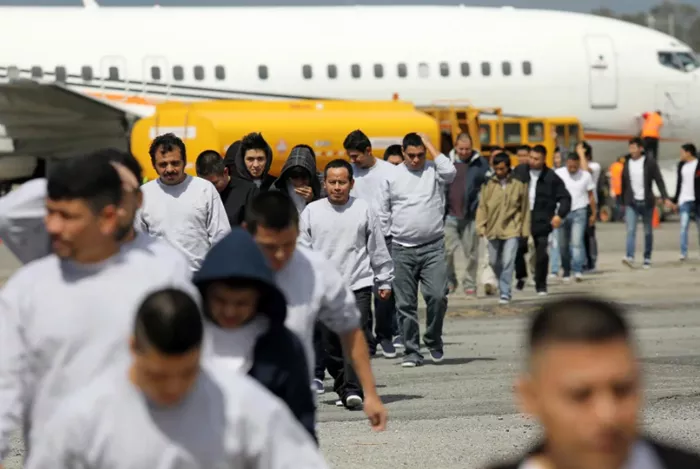Deportations Dropped Under Trump, Remain Steady Under Biden – Will Trump’s Plans Change That?
Despite his harsh rhetoric against undocumented immigrants and promises of mass deportations, deportations actually decreased during Donald Trump’s presidency. In fact, President Joe Biden’s administration has deported nearly the same number of people as Trump did, which might be surprising to some.
There’s more to these figures, though. Trump spent much of his time in office focused on immigration, attempting to build a wall on the southern border and restricting travel from predominantly Muslim countries. He also conducted immigration raids on businesses, a move that former ICE Director Tom Homan says will continue if Trump returns to the White House.
Speaking on Fox News Monday, Homan predicted that a second Trump term would see even more deportations, claiming that “10 million people are getting into the country illegally under the Biden administration.”
Why Were Obama’s Deportations Higher Than Trump’s?
Trump did, in fact, oversee the deportation of more than 1.5 million people during his four years in office, according to Kathleen Bush-Joseph, a policy analyst at the Migration Policy Institute. However, this is still far fewer than the 2.9 million deportations in Barack Obama’s first term and the 1.9 million in his second term. Biden has deported around 1.49 million people, which is similar to Trump’s numbers.
These figures don’t include the millions turned away at the border under a Trump-era policy that remained in place for much of Biden’s term.
There’s some context missing in these numbers. According to Bush-Joseph, Biden has focused deportations primarily on the border. In contrast, both Trump and Obama deported many people from within the country. Obama’s policy mainly targeted single men from Mexico, while today’s undocumented immigrants are more likely to come from further countries and travel in family groups. This makes deportations more complicated and, in many cases, difficult. Some countries simply refuse to accept their citizens.
“U.S. immigration is outdated, overwhelmed, and underfunded,” said Bush-Joseph. She pointed out that 1.3 million people in the U.S. have received removal orders but haven’t been deported yet.
Another challenge is that local law enforcement in many areas no longer cooperates with federal immigration authorities, a trend that began under Obama and grew under Trump. David Bier of the Cato Institute explained that this shift has contributed to the reduction in deportations.
Unintended Consequences of Trump’s Tough Immigration Policies
Bier’s research highlights that Trump’s aggressive approach to immigration had some unintended effects. Instead of prioritizing the deportation of criminals, Trump expanded enforcement to target all undocumented immigrants, including families. This led to his controversial family separation policy.
Bier also argued that by detaining more asylum-seekers rather than focusing on individuals with criminal histories, the Trump administration ended up allowing more people with criminal backgrounds to remain in the U.S.
The System is Already Overwhelmed
While Trump is likely to authorize high-profile immigration raids if he returns to office, the reality is that the U.S. immigration system is already operating at capacity. Expanding detention centers to house the millions of people Trump says he wants to deport would be an enormous undertaking, both logistically and financially.
“The idea that we could quickly build the infrastructure to deport millions of people is unrealistic,” Bier said.
Concerns About Trump’s Deportation Plans
John Sandweg, a former ICE official under Obama, warned that Trump might try to bypass the already overwhelmed immigration courts in order to deport people without hearings. Sandweg emphasized that the majority of undocumented immigrants in the U.S. have not committed crimes. He also pointed out that many are part of mixed-status families, where spouses or children are U.S. citizens.
“You’re not just talking about criminals,” Sandweg said. “You’re talking about families, and that’s the real concern.”
Related topics:
- Chicago’s Immigrant Rights Community Strengthens ‘Deportation Defense Infrastructure’
- Trump Allies and Private Sector Brace for Widespread Immigrant Detentions
- Immigrant Communities Fearful of the Impact of Trump’s Deportation Plan


